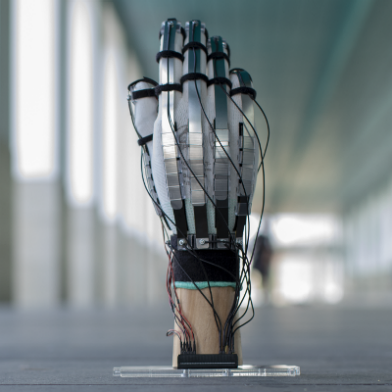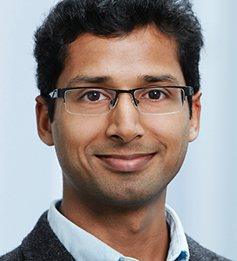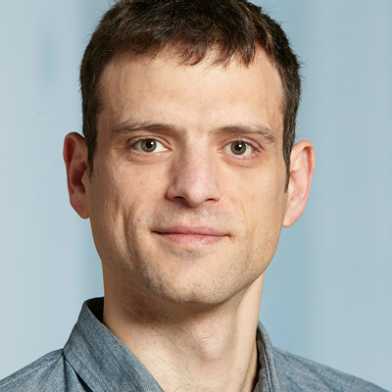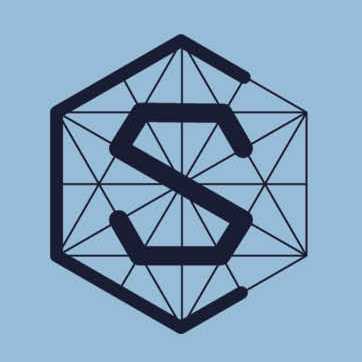In-depth stories: 2018
Using drones to simplify film animation

Producing realistic animated film figures is a highly complex technical endeavour. ETH researchers have now shown how drones can be used to greatly reduce the effort required in the process.
Let’s talk to computers

Professor Juraj Hromkovic explains what language and programming have in common and what makes a good programming language for computer science education.
Zippables: from fabric to form through 3D models
Christian Schüller from the Interactive Geometry Lab has developed a method of designing patterns to assemble 3D objects with only a flat piece of fabric and a zipper.
Ultra-light gloves let users “touch” virtual objects

Scientists from ETH Zurich and EPFL have developed an ultra-light glove – weighing less than 8 grams – that enables users to feel and manipulate virtual objects. Their system provides extremely realistic haptic feedback and could run on a battery, allowing for unparalleled freedom of movement.
ETH researchers uncover security gaps in the 5G mobile communication standard

Researchers in the Information Security Group subjected the upcoming 5G mobile communication standard to a comprehensive security analysis. Their conclusion: data protection is improved in comparison with the previous standards 3G and 4G. However, security gaps are still present.
Internet at the speed of light

Debopam Bhattacherjee and Professor Ankit Singla explore the design of an internet that operates at the speed of light.
How computer scientists can advance robotics

Fuelled by a recent surge in artificial intelligence technologies, robotics is on the verge of taking centre stage in our society. Nevertheless, before robots can assist us with everyday chores at work and at home, they will need the skills to perform an increasingly diverse array of tasks. Professor Stelian Coros, leader of the Computational Robotics Lab within the Department of Computer Science, is developing the mathematical foundations for new algorithms that address this fundamental challenge.
Zurich's dream technicians

For the past decade, computer graphics specialists like Prof. M. Gross and Prof. B. Sumner have been conducting research on behalf of The Walt Disney Company.
New scanner for smart contracts

In June 2018, the start-up ChainSecurity released Securify, a novel tool that enables an easier and more thorough scanning process for smart contracts in the Ethereum ecosystem. Dr Petar Tsankov, chief scientist at ChainSecurity and research scientist at ETH Secure, Reliable, and Intelligent Systems Lab at the Department of Computer Science, gives an insight into the novel technology and its benefits.
Shedding light on dark data

So called dark data are documents that machines cannot read. In cooperation with Zurich Insurance, Professor Ce Zhang brings light into the dark.